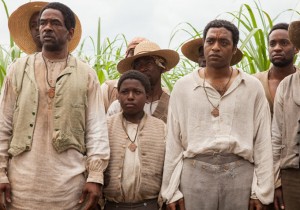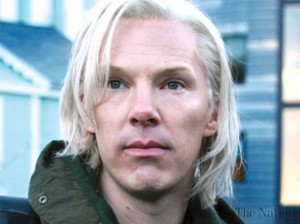Philomena
Posted on November 24, 2013 at 8:40 pm
B+| Lowest Recommended Age: | High School |
| MPAA Rating: | Rated PG-13 on appeal for some strong language, thematic elements and sexual references |
| Profanity: | Very strong, frank, and explicit language for a PG-13 |
| Alcohol/ Drugs: | Drinking |
| Violence/ Scariness: | Sad deaths and abuse |
| Diversity Issues: | Diverse characters, issue of anti-gay bigotry is discussed |
| Date Released to Theaters: | November 22, 2013 |
| Date Released to DVD: | April 14, 2014 |
| Amazon.com ASIN: | B00GSBMNOQ |
 Dame Judi Dench has played many strong-minded, determined characters, from Queens (Victoria and Elizabeth I) to the even more imperious head of the MI6 who can take on James Bond with an air of crisp authority. As the title character in “Philomena,” she shows us the radiance and inner core of strength in a woman we might otherwise find easy to overlook.
Dame Judi Dench has played many strong-minded, determined characters, from Queens (Victoria and Elizabeth I) to the even more imperious head of the MI6 who can take on James Bond with an air of crisp authority. As the title character in “Philomena,” she shows us the radiance and inner core of strength in a woman we might otherwise find easy to overlook.
Martin Sixsmith (co-screenwriter Steve Coogan) underestimates her at first, too. Sixsmith is a journalist-turned politician smarting from a public humiliation after he was fired for something he did not do. He gets little sympathy from those around him and it seems clear that being aggrieved has only fed his sense of superiority, isolation, and entitlement. He mutters something about writing a book on Russian history, though he realizes no one is very interested in reading it. When he meets a young Irish woman who offers him her mother’s story of a half-century search for the son she was forced to give up for adoption, his first reaction is a haughty, “I don’t do human interest stories.” The truth is, he is not really interested in humans, in part because they have not done a very good job of being interested in him.
Sixsmith did eventually write some books about Russia. But first he decided to give human interest a try. The result was Philomena: A Mother, Her Son, and a Fifty-Year Search
.
When she was a teenager, Philomena (Dench) became pregnant and her parents sent her to the now-notorious Magdalene Sisters workhouse. The girls were forced to work for years to pay (financially and spiritually) for their sins. The abused and underage girls also signed away all of their rights to their babies, including access to information about where they were placed. Philomena (Sophie Kennedy Clark as a young woman) was working in the laundry when her son was taken from her and adopted by an American family. For half a century, as she became a nurse, married, and had more children, she missed him and worried about him. Sixsmith found an editor to pay him to write the story, covering expenses for a trip to America to see if they could track him down. She hopes the story will have some lurid details. “Evil is good — story-wise, I mean….It’s got to be really happy or really sad.”
Coogan knows he is at his best playing slightly high-strung, slightly self-involved guys who are too smart for the room and usually end up outsmarting themselves (see “The Trip”). It is especially satisfying to watch his character go from irritation to respect and then affection. There’s a reason the movie is named for her. Philomena is a surprise. If she has awful taste in books and movies, it is because she has the gift of being able to be pleased. When it comes to the big things, she is refreshingly clear-eyed and open-minded. And she understands what it takes to not let anyone make you a victim.
More improbable than any fictional story would dare to be, the journey taken by Philomena and Sixsmith is bittersweet and ultimately transcendent. Performances by Dench and Coogan of great sensitivity illuminate this story of a quiet heroine and the man who was lucky enough to learn from her.
Parents should know that this movie was initially rated R and then given a PG-13 on appeal. It concerns young teenagers put in a home for out-of-wedlock pregnancies and forced to give up their babies for adoption and there is frank discussion of sex and a childbirth scene, the abuse of the young women by the nuns who ran the home, and the life of a character as a closeted gay man. Characters use very strong and explicit language and there is some drinking.
Family discussion: Why did Martin and Philomena feel differently about forgiveness? Did she find what she was looking for?
If you like this, try: “The Magdalene Sisters” and “The Trip”



